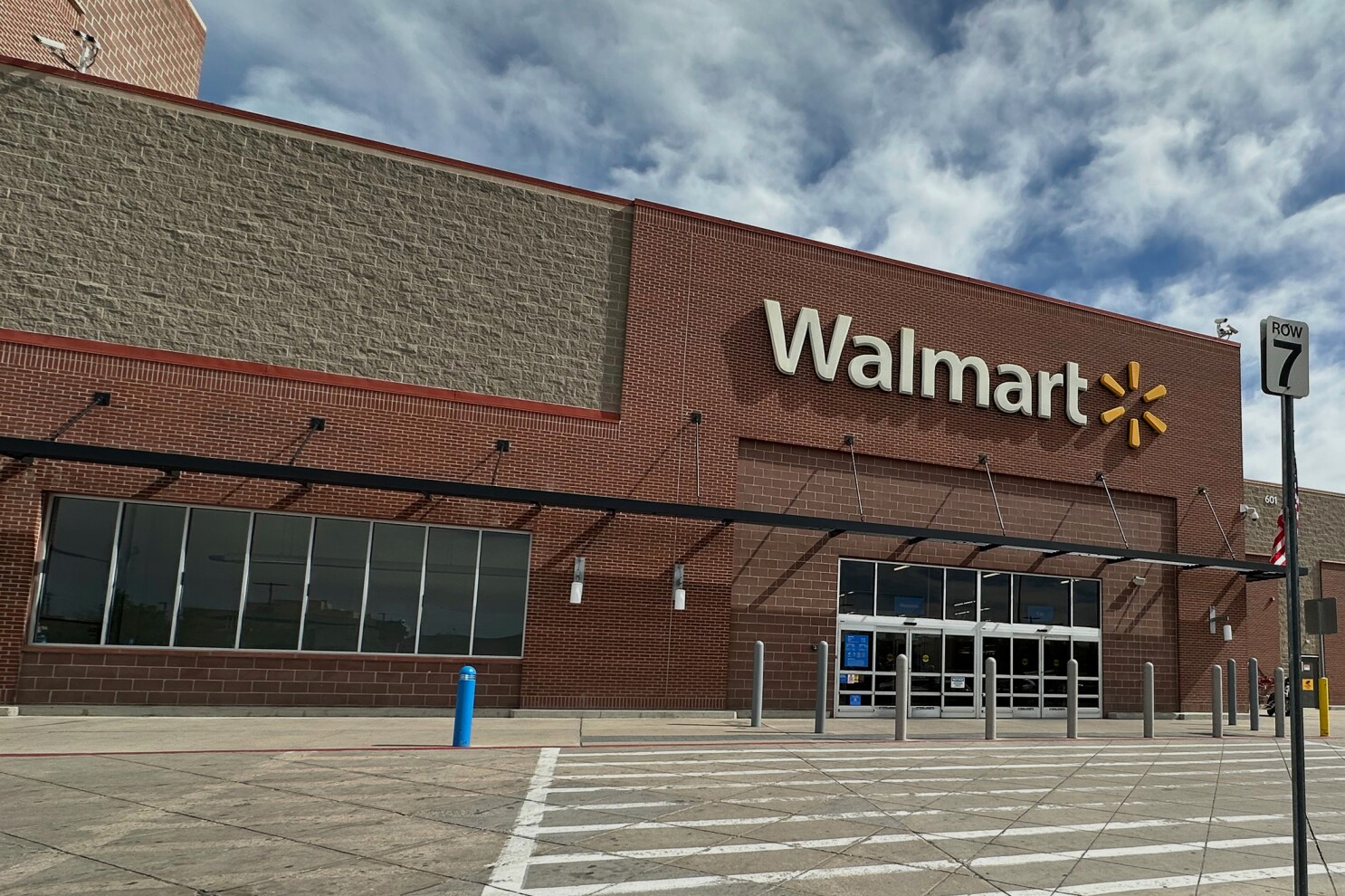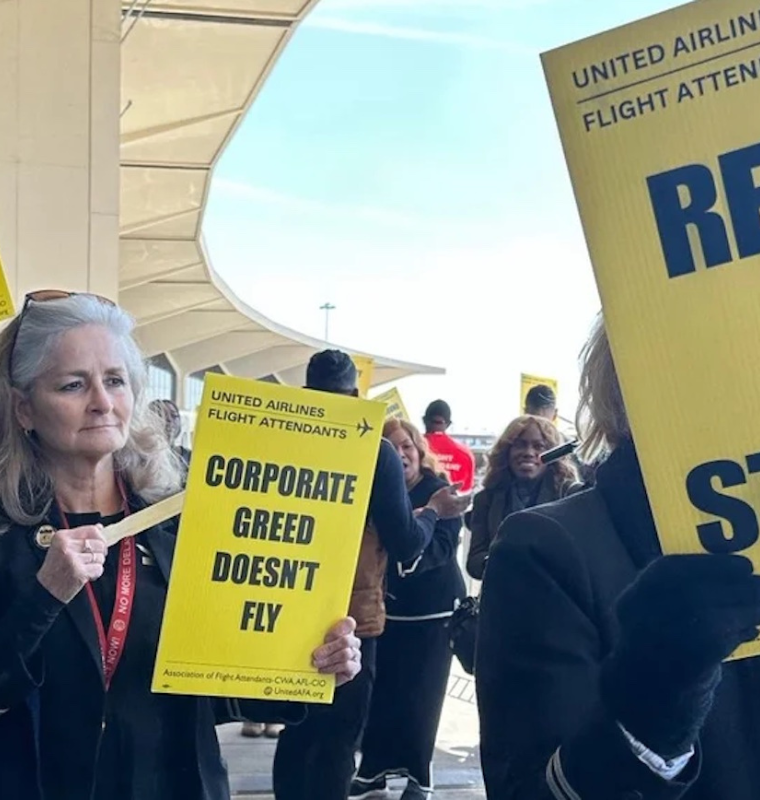Trump Challenges Walmart Over Price Hike Warnings Amid Tariff Impact
Trump Challenges Walmart Over Price Hike Warnings Amid Tariff Impact
By
Leah Rosenfeld
Last updated:
May 19, 2025
First Published:
May 19, 2025

Source: AP News
Walmart Faces Backlash from Trump After Warning of Price Hikes Due to Tariffs
In a fiery statement on Truth Social, former President Donald Trump took aim at Walmart after the retail giant warned of impending price increases due to tariffs. Trump, adamant that Walmart should absorb the costs rather than pass them onto consumers, stated, "Walmart should STOP trying to blame Tariffs as the reason for raising prices throughout the chain."
This statement comes after Walmart CFO John David Rainey expressed concerns over the rapid escalation of costs due to tariffs. Speaking to CNBC, Rainey stated, "We have not seen price increases at this magnitude, in the speed in which they’re coming at us before, and so it makes for a challenging environment."
Tariffs: A Heavy Burden for Retailers
As the largest retailer and grocer in the U.S., Walmart’s pricing strategies often reflect broader economic trends. Recent changes in tariff policies have significantly impacted the company’s supply chain, leading to rising costs on imported goods.
The Trump administration recently lowered duties on Chinese imports to 30% after a 90-day reprieve, but products from dozens of other countries still face a 10% duty. Walmart, which imports a wide range of goods, from electronics and toys from China to produce like avocados and bananas from Central and South America, is grappling with the financial implications of these changes.
Despite some tariff reductions, Rainey remained cautious, stating, "We’re pleased with the progress, but duties are still too high."
Trump’s Challenge: Absorb, Don’t Pass On
Trump’s criticism reflects his belief that retailers should bear the cost of tariffs rather than increasing prices for consumers. In his statement, he said, "Between Walmart and China, they should, as is said, 'EAT THE TARIFFS,' and not charge valued customers ANYTHING." He added a clear warning: "I’ll be watching, and so will your customers!"
Walmart, however, is navigating the delicate balance between maintaining competitive pricing and managing the increased cost of imports. Rainey emphasized the company’s commitment to keeping prices low, saying, "We will try to work with suppliers to keep prices as low as we can."
In a response to Trump’s remarks, Walmart reiterated its dedication to affordable pricing:
"We have always worked to keep our prices as low as possible and we won’t stop. We’ll keep prices as low as we can for as long as we can, given the reality of small retail margins."
Retail Industry Under Pressure
Walmart is not alone in facing the consequences of shifting tariff policies. Major brands across the retail sector have also warned of price hikes or have already implemented them.
- Microsoft recently announced that it would raise the recommended retail prices of Xbox consoles and some controllers.
- Mattel, maker of the iconic Barbie doll, plans to move some production out of China but still anticipates price increases.
- Ford has cautioned that some car models will see price hikes due to tariff impacts.
- Target, Home Depot, and Lowe’s are also expected to address how tariffs are influencing their pricing strategies when they report earnings next week.
Despite the challenges, Walmart’s shares rose 2% on Friday, closing at $98.24. The company maintained its sales forecast for the year, although it withheld specific earnings guidance for the second fiscal quarter, citing uncertainty around tariff policies.
Absorbing Costs to Stay Competitive
In a highly competitive retail landscape, Walmart is striving to balance profitability with consumer expectations. With tight margins and fluctuating import costs, the company is under pressure to absorb as much of the cost as possible without sacrificing its reputation for low prices.
Industry analysts note that while large retailers like Walmart may be able to absorb some of the added costs, smaller retailers may struggle, leading to further consolidation in the retail sector.
The debate over who should bear the burden of tariffs—businesses or consumers—remains contentious. For now, Walmart is focused on maintaining affordability, but if tariffs continue to fluctuate, the company’s long-term strategy may require more significant adjustments.
What’s Next?
With more major retailers expected to report earnings soon, the full impact of tariff-related price increases on consumers will become clearer. As Walmart navigates the ongoing challenge, the retail industry as a whole is keeping a close eye on consumer sentiment and spending behavior.
Whether Walmart and other retailers will manage to absorb tariff costs or pass them on to consumers remains a critical question. For now, Walmart continues to stress its commitment to offering low prices, but the impact of ongoing tariff changes could reshape pricing strategies across the sector.
Popular articles
Subscribe to unlock premium content
Fashion Waste and Sustainability in Fast Fashion Are Forcing a Global Industry Reboot

The Rise and Fall of Argentina’s Economy Reflects a Cycle of Promise and Crisis

Vietnam’s Manufacturing Boom Is No Accident and It’s Just Getting Started

Fashion Waste and Sustainability in Fast Fashion Are Forcing a Global Industry Reboot

The Rise and Fall of Argentina’s Economy Reflects a Cycle of Promise and Crisis

Fashion Waste and Sustainability in Fast Fashion Are Forcing a Global Industry Reboot









